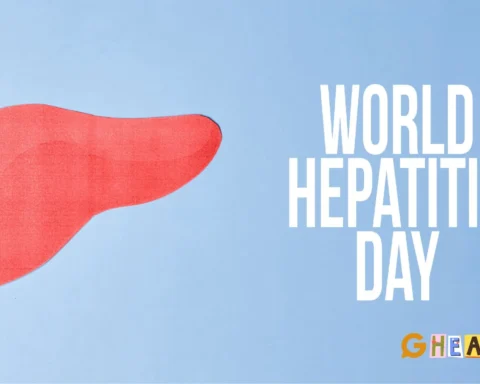'Shifting Trade Dynamics'
A fair world is a complicated paradigm to achieve. After all, the world is conducted by humans with hidden (and selfish) agendas. Most of the agendas hinge on economics and power control.
Nelson Mandela from South Africa suffered this for more than two decades when he was in prison. His statement, "As long as poverty, injustice, and gross inequality persist in our world, none of us can truly rest", is universal and still holds true.
The AGOA Trade Deal
The African Growth and Opportunity Act (AGOA) is a trade pact between the United States and qualifying sub-Saharan African nations. Enacted in 2000, the agreement has been extended multiple times. AGOA's primary goal is to foster economic growth in Africa by expanding trade and investment between the US and African nations.
History of AGOA
The trade agreement known as AGOA was enacted into law by President Bill Clinton in May 2000. Initially scheduled to expire in 2008, the agreement has been extended multiple times. The most recent extension, in 2015, prolonged the agreement until 2025. Under this agreement, eligible African countries are granted duty-free entry to the US market for more than 6,000 products, including textiles, apparel, and agricultural goods.
Benefits of AGOA
The AGOA trade deal offers numerous advantages for the US and African countries. The agreement presents an opportunity for African nations to expand exports to the US market, stimulating economic growth and employment. It also grants access to new technologies and expertise, enhancing productivity and competitiveness.
For the US, the AGOA trade deal provides access to a burgeoning market of over 1 billion people in Africa. The agreement also fosters political stability and economic development in Africa, which can help alleviate poverty and enhance regional security. Additionally, the agreement supports US exports to Africa, leading to job creation and economic growth in the US.
US data shows that Uganda exported goods worth $174 million to the US in 2022. Uganda accounted for approximately 0.0001% of total US trade in 2022. China, which accounted for 16.9% of total trade in goods as of 2023, is the United States' largest trading partner.
Challenges of AGOA
Despite the numerous benefits of the AGOA trade deal, several challenges require attention. One of the primary challenges is inadequate infrastructure in many African countries, which can hinder the transportation of goods to the US market. Moreover, many African countries lack the technical expertise and resources to utilise the agreement fully.
Another challenge is competition from other countries, such as China, which has been expanding its trade ties with African countries in recent years. China has made substantial investments in infrastructure projects in Africa, contributing to increased trade and economic growth in the region. This has prompted the US to ramp up its investment in Africa and provide greater support to African nations.
In 2023, President Biden excluded several countries from AGOA amid ongoing congressional debates. Louisiana Senator John Kennedy introduced a bill in September 2023, proposing a 20-year extension of the AGOA program until September 2045. Mr. Kennedy said that the renewal of AGOA would help the US counter China's growing influence in the region. AGOA provides eligible sub-Saharan African countries duty-free access to the US market for over 1,800 products, complementing the more than 5,000 products under the Generalised System of Preferences (GSP).
Reasons for Removal of Uganda from AGOA
In December 2023, the United States, led by President Joe Biden, removed Uganda from the African Growth and Opportunity Act (AGOA) alongside three other African nations. Effective January 1, 2024, the decision was based on the cited reason of "gross violations of internationally recognised human rights." This expulsion from AGOA is anticipated to have severe economic consequences for Uganda, potentially resulting in substantial job losses and an economic downturn.
Over the 12 months leading to June 2023, Uganda's AGOA exports to the US amounted to $8.2 million, constituting approximately 11.5% of its total US exports valued at $70.7 million. Notably, a significant portion of Uganda's AGOA exports came from the agricultural sector, which employs around 72% of the country's workforce. With Uganda losing duty-free access to the US market for over 1,800 products, the removal from AGOA poses a considerable challenge, prompting the need for alternative strategies to compensate for the nearly $40 million export revenue shortfall. The removal of Uganda from a program that offers favourable trade terms with the United States is set to hurt key export sectors in the economy, including coffee, cotton, and textiles. (Source: africanews; semafor)
How Does AGOA Benefit US Businesses?
The African Growth and Opportunity Act (AGOA) is a trade program initiated by the US government. It grants countries in sub-Saharan Africa special access to US markets, enabling them to export goods to the United States without tariffs. AGOA goes beyond market access and fosters closer collaboration between the US and African nations in various areas, such as technical and economic assistance, aid, investment finance, and political and strategic cooperation.
For US businesses, AGOA opens up a burgeoning market of over 1 billion people in Africa, which can stimulate economic growth and job creation. Moreover, the agreement facilitates US exports to Africa, thereby bolstering economic growth and employment opportunities within the US. By eliminating US import duties on AGOA-covered products, producers and exporters in beneficiary countries gain a competitive advantage over those subject to standard US import duties, which can exceed 30% for certain textile articles. Even a small percentage of savings can make a significant difference in highly competitive sectors, making AGOA preferences crucial in facilitating trade between Africa and the US.
Impact of Removal of Uganda on the USA
The removal of Uganda from the African Growth and Opportunity Act (AGOA) is expected to have a limited direct impact on the US economy. While removing Uganda from AGOA could lead to job losses and a decline in economic growth in Uganda, the direct effect on the US economy is likely minimal. The US may see a slight shift in its import sources for certain products, but the overall impact on the US economy is expected to be insignificant. The US is Uganda's 7th-largest export destination and 142nd-largest import destination. (Source: semafor; oecd.world)
Current Status
The African Growth and Opportunity Act (AGOA) is currently active, benefiting 35 out of 54 African countries, following its renewal in 2015 and an expiration date set for September 30, 2025. The eligibility for each country is reviewed annually by the US. The Biden administration aims to enhance the program, but challenges may arise in Congress.
In May 2023, the United States issued a warning indicating the potential removal of Uganda from the African Growth and Opportunity Act (AGOA) in response to the enactment of its stringent anti-homosexuality law. This legislation introduced severe penalties, including the death penalty, for individuals involved in specific same-sex acts. The law drew widespread global criticism for its human rights implications.
In October 2023, President Biden declared that Uganda had been deemed ineligible for AGOA due to its "gross violations of internationally recognised human rights." This decision was made in response to concerns raised regarding human rights issues within the country. President Biden emphasised the significance of upholding human rights standards for nations participating in AGOA. Additionally, the World Bank announced in August that it would suspend new loans to Uganda following the introduction of the anti-homosexuality bill.
On January 4, 2024, Yoweri Museveni, the Ugandan President, stated that his nation could still take advantage of its access to the 2.4 billion people living in Commonwealth nations, mostly former British colonies, to grow its economy. He lashed against what he called "actors out of greed and philosophical, ideological, and strategic shallowness who miscalculate and seek to monopolise knowledge and use knowledge to oppress others". He accused the US of using technological progress to hold down other countries with different values.
Alternatives for Uganda After Being Removed from AGOA
After being removed from the African Growth and Opportunity Act (AGOA), Uganda will need to explore alternative markets and strategies to mitigate the potential economic effects of its removal from the program. Some alternatives for Uganda include:
Exploring regional markets: Uganda has the opportunity to enhance its trade connections with neighbouring East African nations, namely Kenya and Rwanda, both of which have also been excluded from AGOA. By strengthening ties with these countries, Uganda can explore untapped export markets.
Pursuing non-trade relationships: Uganda can establish non-trade partnerships with various nations, including China. China has significantly expanded its trade connections with African countries in recent years. By heavily investing in infrastructure projects across Africa, China has played a pivotal role in enhancing trade and fostering economic growth within the region.
Diversifying exports: Uganda can broaden its range of exports by incorporating commodities not encompassed by AGOA, such as minerals and natural resources. By doing so, Uganda can effectively sustain its position in the US market while simultaneously expanding its export offerings.
Strengthening non-AGOA trade programs: Uganda can enhance its involvement in alternative trade initiatives, like the Generalized System of Preferences (GSP), that provide advantageous access to the US market for more than 5,000 products without duty charges.
Addressing human rights concerns: Uganda has the opportunity to tackle the human rights issues that resulted in its exclusion from AGOA, including the contentious Anti-Homosexuality Act. By doing so, Uganda can enhance its chances of qualifying for upcoming trade initiatives and ensure continued export opportunities in the US market.
Investing in infrastructure and capacity building: Uganda has the potential to enhance its export capabilities to the US market by focusing on infrastructure development and capacity building. This may include upgrading transportation and logistics facilities and offering exporters comprehensive training and support.
By exploring these options, Uganda can strive to minimise the potential economic consequences of its exclusion from AGOA and sustain the growth of its economy.
Conclusion
The AGOA trade deal has been crucial in promoting economic development and trade relations between the US and African countries. The agreement has granted African nations access to the US market, contributing to economic growth and job creation. Furthermore, it has supported political stability and economic development in Africa, reducing poverty and enhancing regional security.
The African governments involved in the AGOA deal should be aware of the global-level geopolitics the US is engaged in to anticipate potential negative and positive outcomes. They have a responsibility towards the citizens who have elected them to power. What is needed is 'futurist-humanist' thinking and not just political one-upmanship.
Besides, African leaders should not forget their traditional wisdom of 'ubuntu' (which encompasses the interdependence of humans and the acknowledgement of one's responsibility to their fellow humans and the world around them.)











[…] 1978 embargo on US trade with Uganda set new standards for human rights. The unpopular regime in Uganda, involving over 100,000 deaths […]